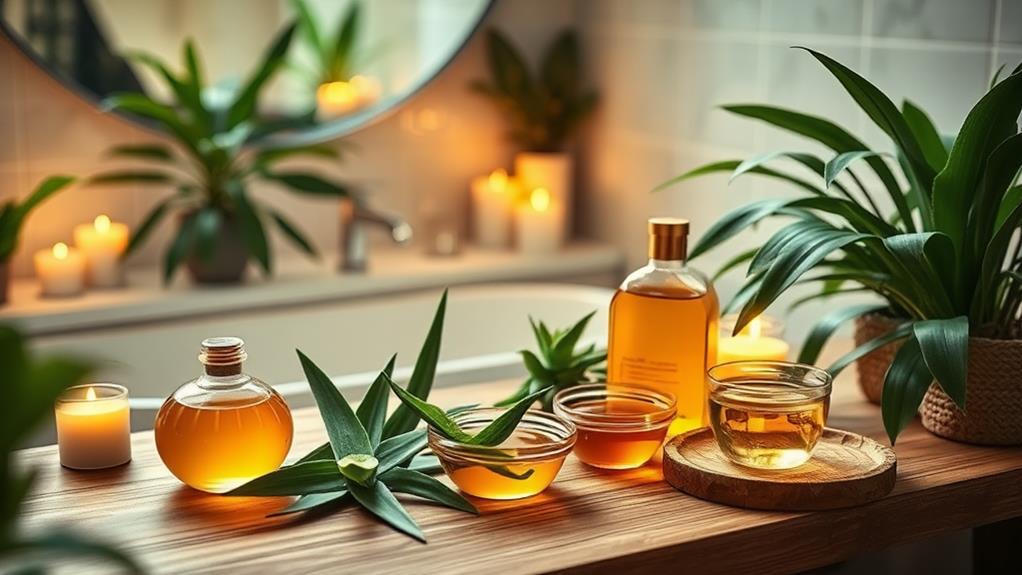If you've struggled with acne, you're not alone, and finding natural solutions might be more effective than you think. By focusing on dietary changes, lifestyle adjustments, and specific natural remedies, you can support your skin's health from within. Imagine incorporating ingredients like tea tree oil and aloe vera into your routine, while also making mindful choices about what you eat. But before you make any changes, it's important to understand the underlying causes of your acne and how these methods can work together to promote clearer skin. What you discover next could change everything.
Understanding Acne Causes
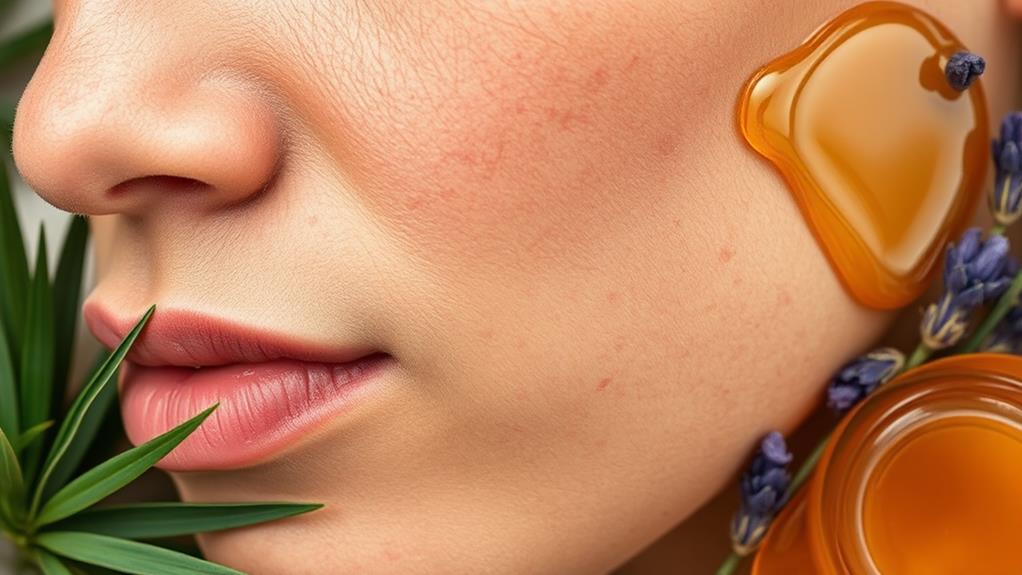
To understand acne causes, you should first recognize that it's not just about skin type; various factors contribute to its development. Hormones play a big role, especially during puberty, when your body's going through changes faster than you can say "pimple!"
These hormonal shifts can make your skin produce more oil, which can lead to clogged pores. Speaking of clogged pores, dead skin cells are another culprit. If they don't shed properly, they stick around, and guess what? They can mix with oil and bacteria, creating the perfect storm for acne.
Then there's bacteria, which can sound a bit scary, but it's normal to have some on your skin. When it multiplies too much, though, it can cause inflammation and, you guessed it, pimples!
Stress is another sneaky factor. When you're stressed, your body produces more hormones that can worsen your skin.
And let's not forget about diet! Eating lots of sugary or greasy foods mightn't help your skin either.
Benefits of Natural Remedies
Exploring natural remedies for acne can lead you to a range of benefits that might surprise you. First off, these remedies often come from ingredients you already have at home. Think honey, aloe vera, and lemon juice. Using what's in your kitchen can save you money, which is always a win!
Another great perk is that natural remedies usually have fewer side effects compared to harsh chemical treatments. Your skin might thank you for choosing gentler options. Plus, many of these remedies are packed with vitamins and antioxidants, which help your skin heal and glow.
You'll also find that natural solutions often encourage healthier habits. For instance, when you start using natural ingredients, you might also begin drinking more water or eating better. It's like a healthy domino effect!
Lastly, the process of trying out different remedies can be fun and even a bit of an adventure. You might discover what works best for your skin while enjoying the journey.
Tea Tree Oil Application
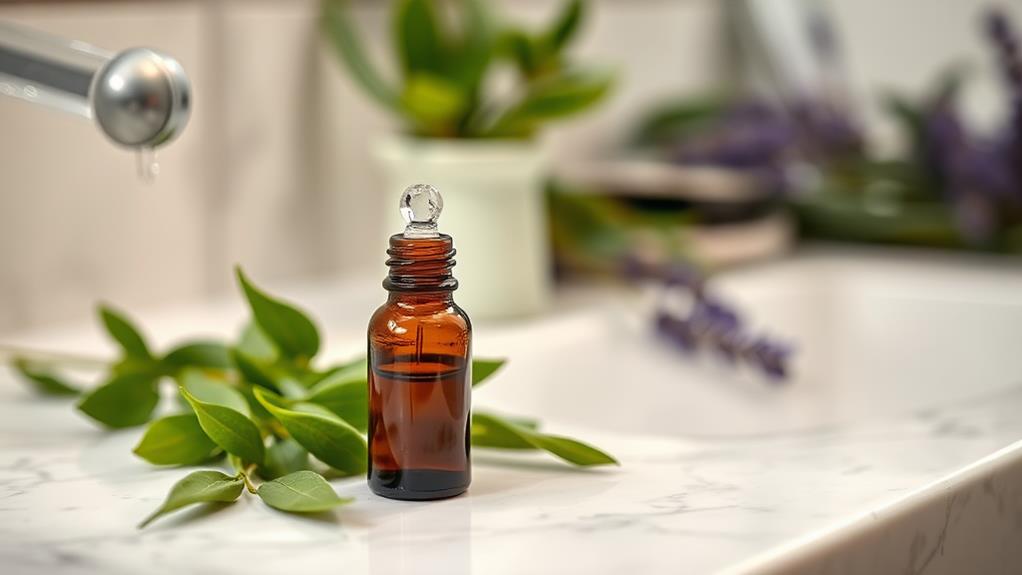
Natural remedies for acne can lead you to some surprising solutions, one of which is tea tree oil. This little powerhouse has anti-inflammatory and antimicrobial properties that can help clear up your skin. Using it's easy, and you don't need to worry about harsh chemicals irritating your face.
Start by washing your face gently with a mild cleanser. After patting it dry, grab your tea tree oil. You can either use it directly or mix it with a carrier oil, like coconut or jojoba oil, to avoid irritation.
If you're going for the direct route, just apply a tiny drop to a cotton swab and dab it on the blemish. A little goes a long way, so don't overdo it!
Let it sit for about 20 minutes before rinsing it off. You can do this once or twice a day, but if your skin feels irritated, cut back a bit.
You'll probably notice some improvement in a few days, so hang in there! Just remember, tea tree oil isn't a magic wand, but it's definitely a helpful friend in your acne-fighting journey!
Aloe Vera for Healing
Aloe vera's soothing properties make it a fantastic ally in your quest for clearer skin. This magical plant is packed with vitamins and minerals that help heal your skin and calm irritated areas. When you apply aloe vera gel directly to your breakouts, you'll feel instant relief. It hydrates your skin while working to reduce inflammation and redness, making those pesky pimples less noticeable.
To use aloe vera, simply cut a leaf from the plant, scoop out the gel, and gently massage it onto your clean skin. You can leave it on for about 30 minutes, then rinse it off with lukewarm water. Doing this daily can help keep your skin calm and happy. Plus, it smells way better than some other treatments!
If you don't have a plant at home, don't worry! You can find aloe vera gel at most stores. Just make sure it's pure and free from added chemicals. Your skin deserves the best!
Dietary Changes to Consider
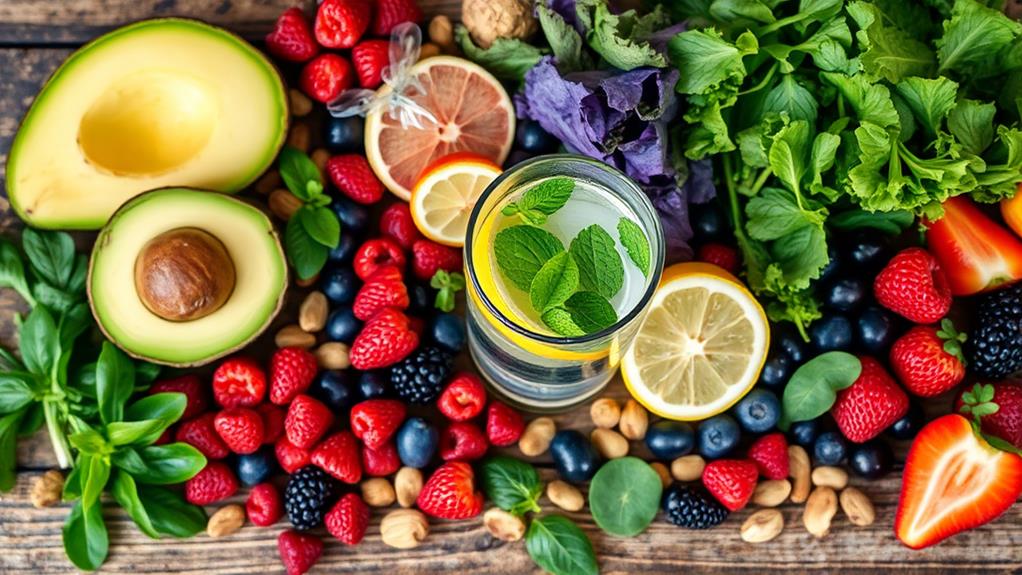
Making some dietary changes can greatly impact your skin's health and help you manage acne more effectively. First, consider cutting back on sugary foods and drinks. They can cause spikes in your blood sugar, leading to more oil production and, you guessed it, more acne!
Instead, try munching on fruits and veggies. Foods rich in antioxidants, like berries and leafy greens, can help fight inflammation and keep your skin glowing.
Next, don't forget about healthy fats! Incorporating foods like avocados, nuts, and olive oil can be fantastic for your skin. Omega-3 fatty acids, found in fish like salmon, are especially good at reducing inflammation.
Also, drink plenty of water. Staying hydrated helps your body flush out toxins and can keep your skin clear. If you're a fan of dairy, you might want to experiment a bit. Some people find that reducing dairy helps with their acne.
Lastly, consider a balanced diet with whole grains, lean proteins, and healthy snacks. Eating well isn't just good for your body; it's a recipe for clearer skin, too!
Essential Oils for Skin
Essential oils can be a powerful ally in your quest for clearer skin. These natural wonders are known for their soothing and healing properties, making them perfect for tackling acne. You might want to try tea tree oil, which has antibacterial qualities that can help reduce breakouts.
Just remember, always dilute it with a carrier oil like coconut or jojoba oil before applying it to your skin.
Lavender oil is another great option. It not only smells amazing, but it can also calm inflammation and help with healing.
Plus, who doesn't love the idea of smelling like a spa?
If you're feeling adventurous, consider using rosemary oil too. It can improve circulation and promote healthier skin.
Just mix a few drops with your favorite moisturizer.
When using essential oils, be careful. They're potent, so less is more! Start with a patch test to see how your skin reacts.
You'll want to treat your skin gently, like it's a delicate flower. With a little patience and the right oils, you could be well on your way to glowing, clear skin.
Happy oiling!
Herbal Supplements to Try
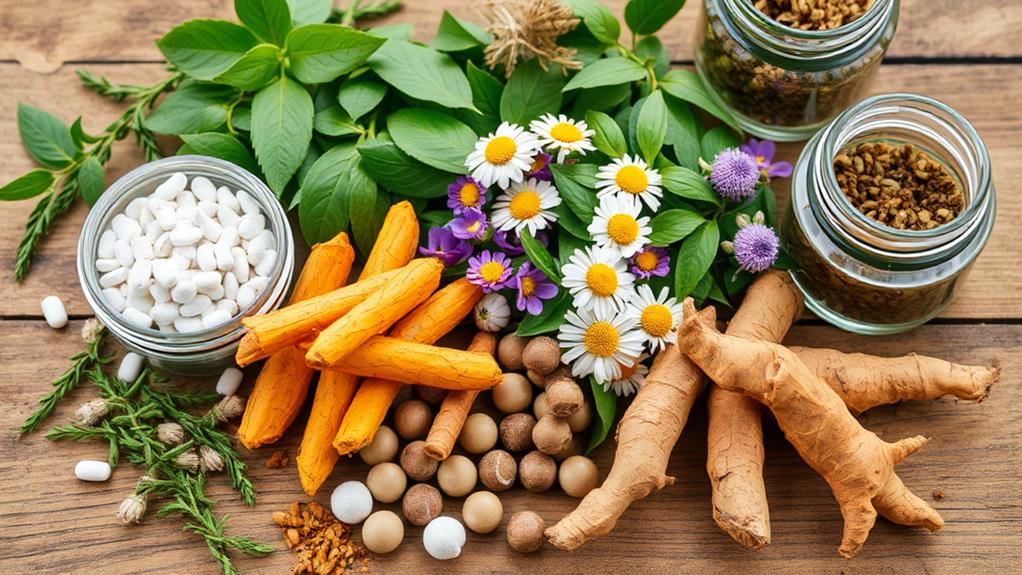
When it comes to tackling acne naturally, herbal supplements can be a great addition to your skincare routine. They're like little helpers for your skin, working from the inside out. One popular option is burdock root. This herb's known for its detoxifying properties, which can help clear toxins from your body and may reduce acne flare-ups.
Another great choice is green tea extract. It's packed with antioxidants that fight inflammation and may help calm those pesky breakouts. Plus, you might enjoy sipping some green tea while you're at it—double win!
Don't forget about zinc! This mineral is essential for skin health and can reduce oil production, which means fewer clogged pores. You can find zinc in supplement form or in foods like nuts and seeds.
Lastly, consider trying turmeric. This bright yellow spice has anti-inflammatory properties, which can help soothe your skin. You can take it as a supplement or mix it in your meals.
Lifestyle Tips for Clear Skin
To achieve clear skin, adopting a few lifestyle changes can make a significant difference.
First off, drink plenty of water! Staying hydrated helps flush out toxins and keeps your skin looking fresh. Aim for at least eight glasses a day—your skin will thank you!
Next, consider your diet. Eating fruits and veggies isn't just good for your body; it's great for your skin too! Foods rich in vitamins A, C, and E can work wonders. Think carrots, oranges, and nuts.
And, if you can, cut back on sugary snacks and greasy foods. They might taste good, but they can trigger breakouts.
Also, don't forget about sleep! Getting enough rest is essential for healthy skin. Aim for 7-9 hours a night. Your body repairs itself while you sleep, including your skin!
Lastly, try to manage stress. Stress can lead to breakouts, so find ways to relax. Whether it's doodling, reading, or just taking a deep breath, find what helps you unwind.
Maintaining a Consistent Routine
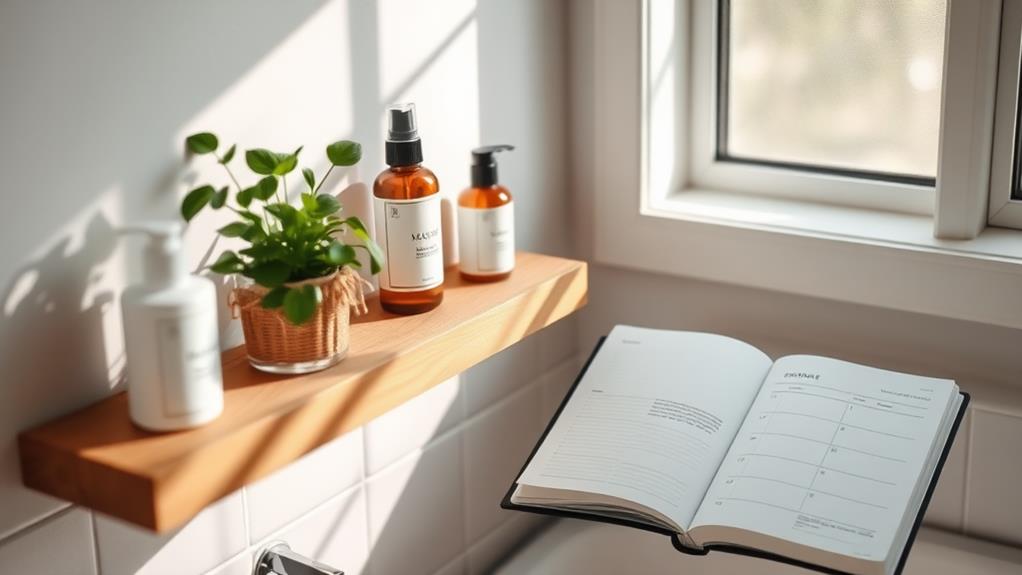
A consistent skincare routine is key to achieving and maintaining clear skin. Think of it like brushing your teeth; you wouldn't skip it, right?
Start by choosing gentle products that work for your skin type. Cleansing twice a day helps remove dirt and oil, while moisturizing keeps your skin happy and hydrated.
Set a specific time each morning and evening for your routine. Maybe it's right after brushing your teeth or right before bed—whatever works for you! Stick to it, and you'll start to see improvements.
Don't forget to be patient; good things take time, like waiting for cookies to bake!
Also, consider keeping a journal to track your progress. Write down what products you're using and how your skin reacts. This'll help you figure out what works best for you.
And if you slip up occasionally—don't stress! Everyone has off days. Just get back on track and keep going.
